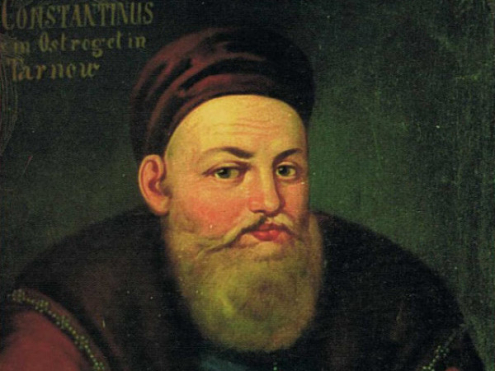Such is the title of the article which appeared in the magazine “II Borhese” about Bolshevik activities in Italy and their influence on the Vatican.
The Pontifical Collegium – Russicum – writes the author of the article, has changed its name without the Pope’s permission and is now called the “Russian House” (La Casa Russa). Its rector, the French Jesuit Paul Mailleux, is now called the “Red Pope” because of his great influence on the Eastern Congregation.
Three Russian religious, who are supposed to study the Latin rite, but actually draw the Vatican circles into the Bolshevik orbit, now live in the “Russian House”. One of them, a well-informed person, who is highly regarded by Vatican circles, told me recently — says the author of the article — that the Eastern Congregation now issues enormous sums of money to the Jesuits, who make the Russian Church their primary concern, the end result of which is that the Apostolic Capitol has never to date given out as much money to Catholic countries, as it now gives to the Orthodox Russians.
Vatican’s men behind-the-scenes even after many centuries (of experience) still don’t know the Russians. Consequently, the “Red Pope” places his people everywhere in key positions, as for example, in the Eastern Congregation, the University of Propaganda, the Lateran Atheneum, etc. And so friends of the Bolsheviks have gained control of the situation in the Eastern Congregation and in Vatican diplomatic circles, and the Gregorian University now has courses on Marx and Lenin, the Biblical Institute discusses the mistakes of (past) popes, and the Institute of Oriental Studies glorifies Russian imperialism and Russian nationalism.
Recently under the influence of the “Red Pope” the Jesuits met in Rio de Janeiro together with their Provincial Father Aruppe and there decided to aid the socialization of production and culture, to help bring an end to private property, and to give (material?) aid to the revolutionaries of South America. And so the Jesuits in these countries will no longer preach theology, but they will preach materialistic anthropology and sociology.
The Jesuits have become the tool of Bolshevik attempts to penetrate even Anti-Communist émigré circles. In their so-called “Missions” there are 345 priests at work, but this is another story — quite interesting indeed — which merits special attention, for the rector of the “Russicum” is surrounded by Bolshevik spies. It has been stated that a great number of women — both nuns and lay women — partake in this activity, and all of this is being supported by Vatican money. The Italian police has seized quite a few letters from these “agents” to the rector of the “Russian House” — i.e. the Red Pope. These letters were sent there from Belgium, Brazil, Germany, Argentina, France, and Italy. At the present we will not divulge the names of the persons involved, but will merely mention (branches of the) Theological Institute (at the) following (addresses): (a) rue de la Couronne in Brussels, (b) rue de Rule in Paris, (c) via Pisana in Rome, (d) via Lattuada in Milan, (e) Rentgenstrasse Kirchenverwaltung in Munich, Bavaria, (f) 2964 Guemes in Buenos Aires, (g) Rua Bon Pastor in Sao Paulo, Brazil, etc.
All of these women have secret contacts with Bolshevik agents of the abovementioned countries, and their (bits of) information they send directly to the “Red Pope in the Russian House” in Rome.
To facilitate these activities the “Red Pope” has ordered that the designation “missions” be change to “Ecumenical Centers”. And thus the outer-trappings have been changed, but the “Mafia in the Russian House” continues its activities throughout the world.
Consequently, it is of utmost importance to uncover the work of Russian Communist agents in Italy, even though they may be dressed in clerical garments. Public opinion demands that everything that happens “behind bronze (or gates) doors” be brough out into the open — that the manner of maintaining the Bolshevik enclave (cell) in the Vatican be disclosed.
